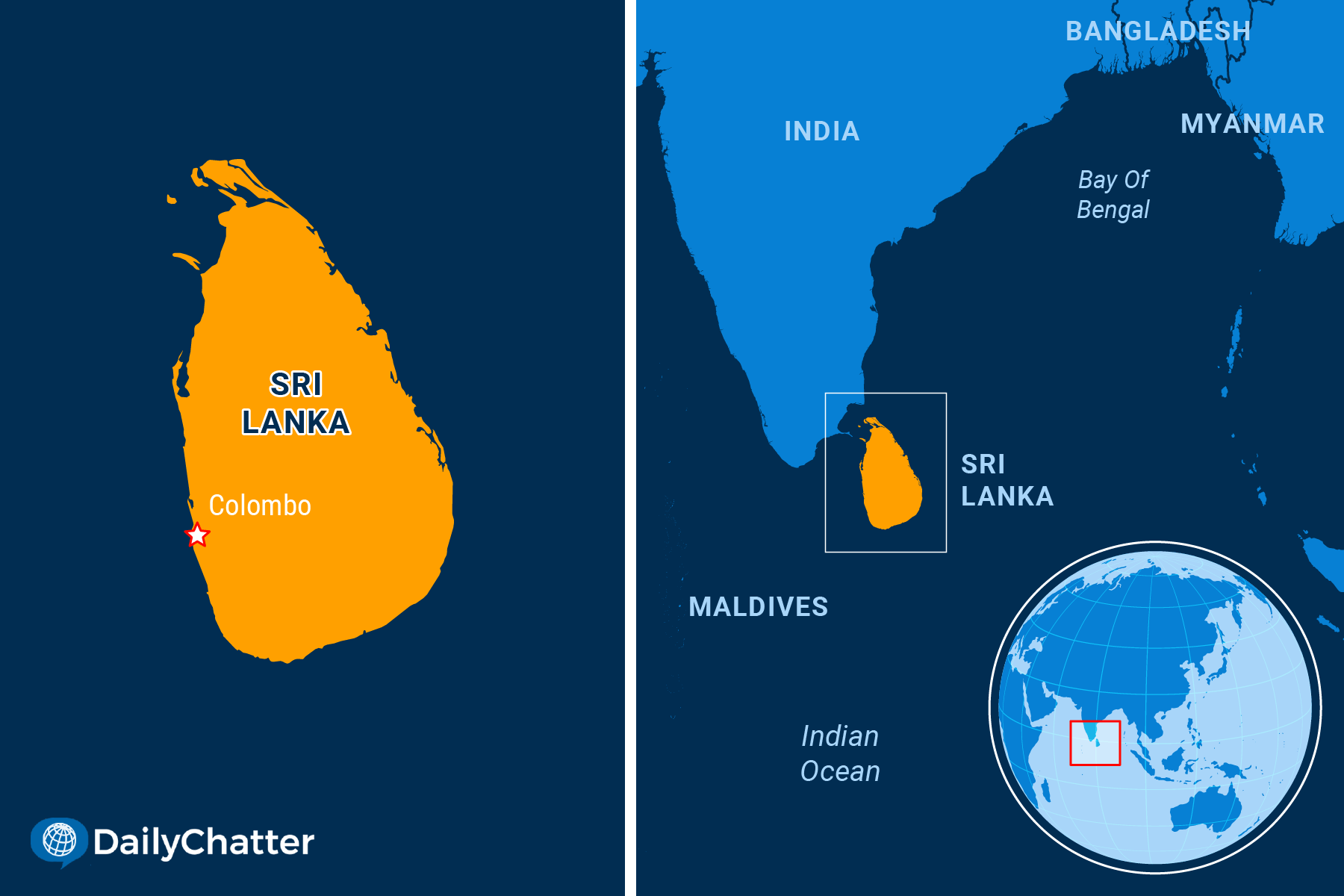NEED TO KNOW
Mixed Messages
SRI LANKA

Sri Lanka has been grappling with political and economic instability since the end of its 26-year-long civil war 15 years ago.
After the pandemic, miles-long lines began appearing for fuel. Power cuts were the daily norm. And even dal (lentils) and fish, daily staples of Sri Lankan cuisine for even the poor, became luxuries as hunger spread.
In 2022, the country of 22 million went bankrupt, defaulting on its debt.
Last year, explained World Politics Review, the coronavirus, the war in Ukraine’s effect on food and fuel prices, and other inflationary pressures continued to batter the island off India’s southern coast. Furious, Sri Lankans took to the streets seeking the resignation of President Gotabaya Rajapaksa who won office after suicide attacks on Easter Sunday in 2019, then packed the government with his relatives – his family, meanwhile, having already dominated the country for years. He quit in disgrace in 2022.
Now, with the help of an International Monetary Fund aid package, Sri Lanka is back open for business. The South Asian country’s all-important tourism industry in particular is bouncing back, reported the Telegraph.
Still, today, that renewed push toward stability and prosperity has brought a new set of challenges. President Ranil Wickremesinghe must now balance China and India, the two massive countries that dominate the region.
China has invested heavily in Sri Lanka over the years, reported Nikkei Asia. But these expenditures haven’t necessarily helped the country as much as its leaders would like. Locals call Mattala Rajapaksa International Airport, for example, which opened in 2013, “the world’s emptiest airport” because no flights take off or land there, though the Export-Import Bank of China spent $209 million to build it.
China Petroleum and Chemical Corporation (Sinopec), the world’s biggest hydrocarbon refiner, is now building a $4.5 billion refinery in the country, too – the company’s first outside of China, added Oilprice.com.
Accordingly, Wickremesinghe has signed big contracts with Indian companies for power plants, shipping ports, and other facilities in order to counteract China’s financial footprint on the island. Last year, the US International Development Finance Corporation allocated more than $553 million in an investment for a container terminal.
Earlier this year, after allegations surfaced that Chinese spy vessels were docking in Sri Lanka, Wickremesinghe banned Chinese research ships from accessing the country, added Foreign Policy magazine.
Internal political tensions are also bubbling under the surface.
Sri Lankan authorities, for instance, recently arrested four ethnic Tamils when they commemorated loved ones who had died in the civil war in 2009, the Hindu wrote. Sri Lankan courts have ruled that such events might be veiled “attempts to revive” the Liberation Tigers of Tamil Eelam (LTTE), a rebel group that the Sri Lankan military defeated.
In a move that seems designed to improve relations with officials in the Sri Lankan capital of Columbo, India has also banned the LTTE, noted CNBC.
Sri Lanka must reconcile the freedom of Tamils to express themselves with the need to avoid violence, say human rights groups. However, it’s not a battle they are winning.
In January, the country passed the “draconian” Online Safety Act to regulate online content, which gives a government commission broad powers to assess and remove “prohibited” content that includes “false statements about incidents” in the country and “hurting religious feelings,” the BBC reported. It holds social media platforms liable for messages and posts.
It was one of three bills, including the new Anti-Terrorism Act and Non-Governmental Organizations (Registration and Supervision) Act, that will suppress dissent, allow for arbitrary arrests and repress civil society groups that fight corruption and promote democracy, says Human Rights Watch.
Authorities say the Online Safety Act will help fight cybercrime. But civil rights groups, journalists and other critics say it suppresses dissent and protested before its passage into law.
Social media had a key role in protests during the 2022 economic crisis, which ousted the then-president.
The irony is, says the human rights organization, that the very initiatives by the government to crack down on dissent will repress the economic reforms and growth it’s trying to promote.
To read the full edition and support independent journalism, join our community of informed readers and subscribe today!
